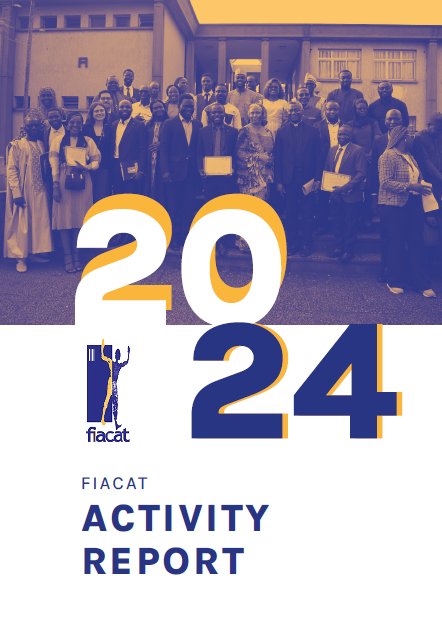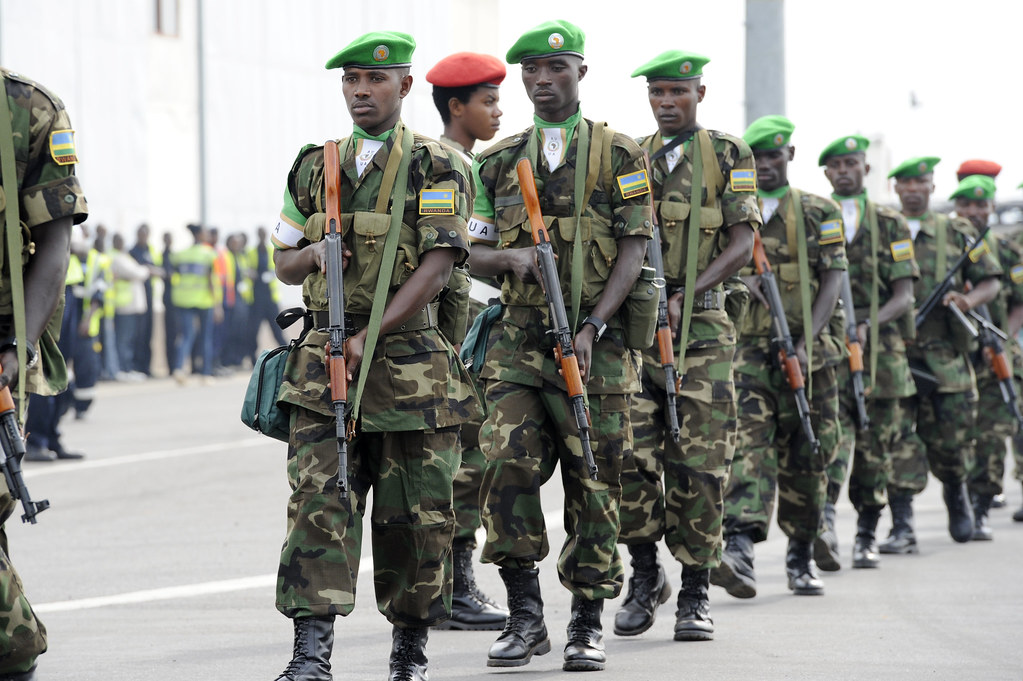EU should suspend military aid to Rwanda over its support for M23 in eastern DR Congo
20 December 2022. In a joint letter to European Union (EU) officials, seven human rights organisations (including FIACAT) warn of the urgent need to end military aid to the Rwandan army under the European Peace Facility. Together, they urge EU governments to publicly and strongly condemn any collusion or cooperation with armed groups active in the East of the Democratic Republic of Congo, and in particular Rwanda's support for M23, and to appoint a special EU envoy to the region to facilitate dialogue processes between the stakeholders.
Mr. High Representative / Vice-President of the EU,
Ministers of Foreign Affairs of the EU Member States,
As the European Union (EU) and its Member States develop their new strategy for the Great Lakes, 7 European civil society organisations and platforms express their deep concern about the escalating violence and the deteriorating humanitarian situation in the eastern part of the Democratic Republic of Congo (DRC). We strongly condemn the exactions against civilians in the provinces of North and South Kivu and Ituri, and call on the EU and its Member States to act in a firm, united and coherent manner in order to support the peace process in the Great Lakes region. The Ukrainian crisis should not divert the EU's attention from other conflicts in the world. The EU must respect the human rights values it promotes and put the interests of the populations affected by the conflicts in the Great Lakes region above any European interest on the continent.
The signatory organisations are deeply concerned about the recent adoption by the Council of the European Union of an assistance measure of 20 million euros to support the deployment of the Rwandan army to fight an Islamist insurgency in Mozambique, in the framework of the European Peace Facility (EPF). The support to the Rwandan army for operations in Mozambique cannot be dissociated from the current context in the east of the DRC and its support to the rebels of the 23 March Movement (M23). The EU's decision to grant this envelope to the Rwandan army has deeply shocked Congolese public opinion and our Congolese civil society partners, thus fuelling doubts about the sincerity of the EU's commitment to peace in the Great Lakes region. In particular, analyses pointing to the defence of the interests of the French company TotalEnergies in Cabo Delgado, Mozambique, as an important factor in this decision are worrying. This move risks undermining the efforts already made for stability, security and development in the region, and seriously damages the image of the EU and European organisations working for justice and peace in the DRC. Dr Denis Mukwege, winner of the Nobel Peace Prize and the European Sakharov Prize for his fight for women's rights and peace, said he was "outraged" by the measure. It is therefore crucial for the EU to change course.
Renewed tensions in the Great Lakes region
The resurgence of the M23 armed group in North Kivu since November 2021 is increasing tension in the sub-region, particularly between Rwanda and the DRC. According to the UN Panel of Experts, Human Rights Watch and US diplomacy, the M23 is supported by Rwanda. Kigali disputes this, accusing Kinshasa of collusion with the Democratic Forces for the Liberation of Rwanda (FDLR). In fact, units of the Congolese army have collaborated this year with armed groups responsible for abuses, including the FDLR, in the context of operations against the M23. This connivance implies complicity by the Congolese army in the abuses of these armed groups, and the Congolese government should put an immediate end to it. However, this can in no way justify the support of Rwanda or any other country in the region to the M23.
Furthermore, the M23 insurgency should not be allowed to obscure the other armed groups in the region that continue to operate on Congolese soil. In the last three months alone, the Kivu Security Barometer has recorded nearly 400 killings of civilians by armed groups in eastern DRC, not counting the abuses committed by the M23.
Despite the call for a ceasefire following the Luanda mini-summit of 23 November 2022, in the context of regional mediation efforts, serious abuses were perpetrated on 29 and 30 November in Kishishe and Bambo, two villages in North Kivu occupied by the M23. A preliminary investigation conducted by the UN Joint Human Rights Office (UNJHRO) and MONUSCO, whose conclusions were published on 7 December, mentions summary executions by bullets or knives. The provisional toll is 131 civilian victims, including 102 men, 17 women and 12 children, killed in acts of reprisal.
The investigation also reported more than 20 rapes of women and girls.
Multi-dimensional crisis and destabilisation of the region
The security situation in North Kivu province is exacerbating the humanitarian needs, which are now considerable. The violence has caused the displacement of more than 450,000 civilians. The multi-dimensional crisis that has plagued eastern DR Congo for many years has fuelled chronic instability, hampering the development of the region as a whole and undermining the process of building the Congolese state. With one year to go before the elections in the DRC, the resurgence of regional tensions, coupled with the many internal challenges of organising the elections, pose a significant risk to the region's longer-term stability.
Recommendations
The EU and its Member States should take a clear and firm stance on the escalating conflict in eastern DRC and condemn any violations of territorial sovereignty that threaten the stability of the region. The EU and its Member States should :
-
Publicly and firmly condemn any collusion or cooperation with armed groups active in eastern DRC, and in particular Rwanda's support for M23. As such, the pressure and suspension of aid to Rwanda by several foreign powers in 2012 had contributed to the de-escalation of the conflict.
-
Immediately suspend military aid to the Rwandan army under the European Peace Facility and make its support conditional on a prior commitment to withdraw Rwandan army support to M23.
-
Impose new sanctions against perpetrators of human rights violations in eastern DRC and their supporters abroad. The EU should extend targeted sanctions to include those found responsible for serious abuses, as well as senior officials throughout the region who are complicit in abuses by armed groups.
-
Appoint an EU Special Envoy to the region to facilitate dialogue processes between stakeholders and demonstrate the EU's willingness to actively engage in peace in the region. The establishment of a Special Envoy for the region could help to strengthen dialogue between the different EU chancelleries and delegations in the region, thus contributing to a more coherent EU policy.
-
Increase its development and humanitarian aid funding for DR Congo. In a fragile context of protracted crises such as the DRC, the EU's commitment to Nexus programming in eastern DRC remains of the utmost importance.
Signatory organisations :
- FIACAT (International Federation of ACAT)
- FIDH (International Federation for Human Rights)
- MISEREOR
- Open Society Foundations-Europe and Central Asia
- PAX
- SOLSOC
- TLP (Tournons la Page)




